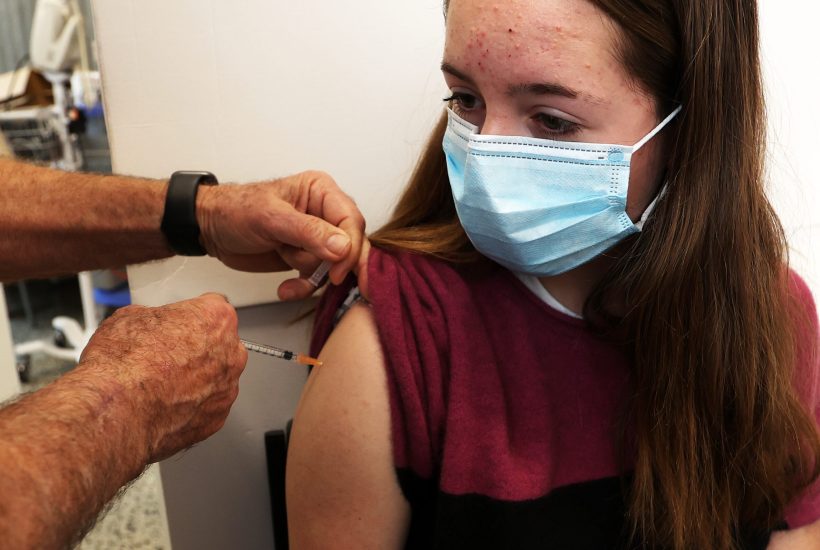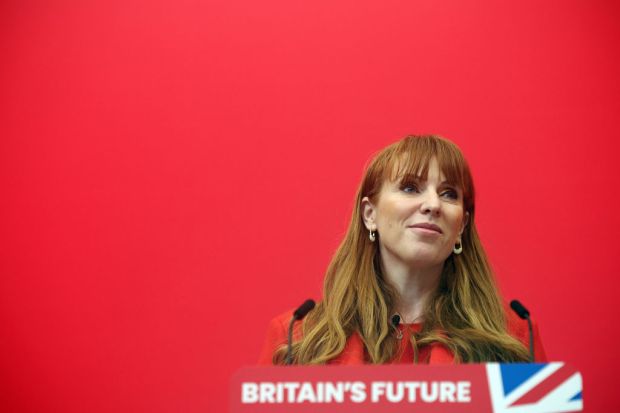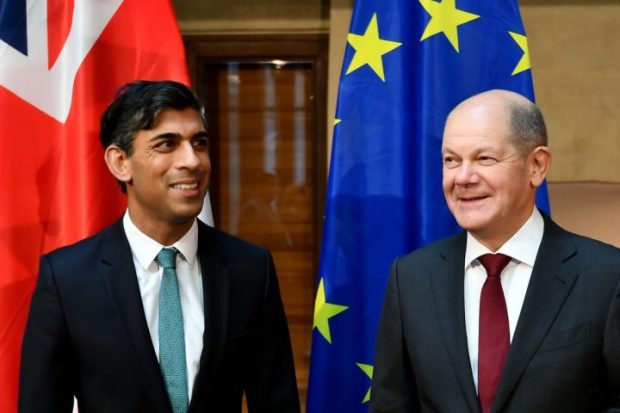On Saturday, the Health Secretary made his most bullish comments on child vaccination so far. Writing in the Times, Sajid Javid argued that offering all teenagers the jab will ‘solidify our wall of protection,’ offering a stronger defence against Covid and new strains.
In doing so, Javid has intensified the debate on whether over-12s ought to be vaccinated. Earlier this month, the Joint Committee on Vaccination and Immunisation (JCVI) advised that jabs should be offered to 16 and 17-year olds, bringing the UK into line with countries such as Sweden. The JCVI is now investigating whether the jab could be offered to all 12-15 year olds, as in the US and several other European countries. In one Office of National Statistics study, which surveyed parents in areas of England where Covid-19 infection was highest, almost nine in 10 would “definitely” or “probably” agree to inoculate their child.
The coronavirus is a less prolific killer of the young than many of its predecessors. Around half the 40m victims of ‘Spanish flu’, for instance, were aged 20-40. Yet deaths in children and young people following SARS-CoV-2 infection are mercifully rare. New research has found that, in the first 12 months of the pandemic, only 25 under-18s perished from the virus in England. 251 children were admitted to ICU.
Opponents to jabbing the young believe these data hand them a watertight case. Children, they argue, don’t get ill from the coronavirus, and we cannot jab the young to protect the old. But it is absurd to suggest that children haven’t been profoundly affected, albeit indirectly, by this pandemic. How many parents, after all, would deny that the past 18 months have, in some way, harmed their child? How many spiralled into despair upon hearing teaching unions today claim that hundreds of schools will be forced to reintroduce tougher Covid measures ‘within weeks’?
Pupils have already spent months isolated from friends and teachers, deprived of schooling and social activities. Following the lockdowns, mental health referrals doubled for children and young people in England. Thousands left secondary school without a proper farewell. And even if the direct risk from Covid is low, the young still suffer if immunocompromised or elderly relatives succumb to the virus. So vaccinating younger people, which may help slow the spread of the virus, does indeed shield them from risk.
Meanwhile, the NHS backlog will make it harder for children to access the care they need. Waiting lists and delays have reached such levels that doctors and their staff working at GP surgeries across England are now reporting regular abuse from disgruntled patients.
Those who reject jabbing the over-12s talk loosely about the increased risks of myocarditis – an inflammatory heart condition – from the vaccine. Armchair epidemiology is a hazardous endeavour whichever side you’re on, but according to some studies, myocarditis may actually be more likely to occur after a coronavirus infection than a jab.
Vaccine sceptics may also be overlooking another concern raised by paediatricians: the uptick in children simultaneously infected with SARS-CoV-2 and other common viruses, such as respiratory syncytial virus (RSV), which can cause breathing difficulties.
The point isn’t that we must jab 12-15 year olds, but rather that the outrage against extending it to younger age groups is both superficial and misguided. The decision should lie with parents, and it is baffling that some vocal proponents of personal autonomy are trying to strip them of it by insisting the benevolent state make the choice on their behalf. Any difference made will be at the margin: as Professor Francois Balloux of UCL has remarked, ‘the vast majority of the global population is expected to get infected by the virus, likely more than once over their lifetime.’ Herd immunity from vaccination is unlikely, because existing Covid vaccines are simply not good enough at preventing transmission and infection. But they are very good at preventing severe disease and death.
When it comes to the over-12s, ‘Should we vaccinate children?’ is the wrong question. Given that the jab would be voluntary, the real issue is ‘Should we prevent those who want a vaccine from receiving it?’ And the answer, in short, is ‘No’.<//>
Got something to add? Join the discussion and comment below.
Get 10 issues for just $10
Subscribe to The Spectator Australia today for the next 10 magazine issues, plus full online access, for just $10.




















Comments
Don't miss out
Join the conversation with other Spectator Australia readers. Subscribe to leave a comment.
SUBSCRIBEAlready a subscriber? Log in